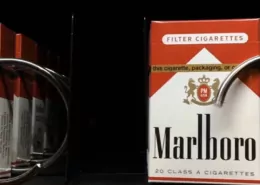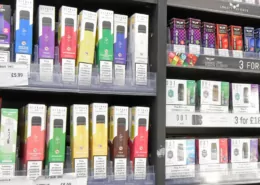FDA Grants $3.9 Million to Study Effects of E-Cigarette Flavors on Smoking Behaviors
In a groundbreaking development, the U.S. Food and Drug Administration (FDA) has granted a substantial $3.9 million research grant to the Center for Tobacco Research at The Ohio State University Comprehensive Cancer Center. This grant aims to support a study that will evaluate the effects of e-cigarette flavors on the smoking behaviors of current adult smokers. Led by Dr. Theodore Wagener, the director of Ohio State’s Center for Tobacco Research, and Dr. Tracy Smith of the Medical University of South Carolina (MUSC) Hollings Cancer Center, this study will provide essential scientific data to inform the FDA’s regulation of flavor use in e-cigarettes.
Urgent Need for Scientific Data
The study conducted by the Center for Tobacco Research will be the first of its kind to offer definitive information on the impact of non-tobacco e-cigarette flavors in assisting adult smokers to quit smoking. Presently, the FDA is making regulatory decisions about e-cigarette flavors based on incomplete scientific data. This knowledge gap poses challenges as both youth advocates and adult smokers are affected. Flavored e-cigarettes, with enticing flavors such as cinnamon bun, cotton candy, bubble gum, mango, strawberry, or chocolate, have raised concerns about attracting young people to develop an addictive and harmful habit. Moreover, these flavors may also appeal to adults who smoke cigarettes but struggle to quit.
While there are a few survey studies suggesting that flavored e-cigarettes might be more helpful for transitioning to vaping, these studies lack the rigor required for the FDA to base its regulatory decisions upon. Consequently, the forthcoming study by the Center for Tobacco Research will play a pivotal role in providing the FDA with definitive information regarding the potential benefits, if any, of e-cigarette flavors for adult smokers.
Balancing Protection and Harm Reduction
According to the National Academies of Science, Engineering, and Medicine, e-cigarettes are likely to be considerably less harmful than traditional combustible cigarettes. However, due to the alarming rise in youth vaping, particularly with flavored e-cigarettes, more than one million e-cigarette products have been banned since 2020. Although switching to e-cigarettes is not an entirely healthy choice, it is considered a form of harm reduction compared to continued smoking.
Dr. Wagener emphasizes the need for the FDA to strike a balance between protecting young people and providing harm-reduction options for adults. The upcoming trial, supported by the grant, will generate critical data to facilitate well-informed public health decisions that have a lasting impact.
Evaluating Flavoring and Smoking Behavior
The national, randomized, controlled trial sponsored by the FDA grant will enroll up to 1,500 cigarette users from across the United States. The research aims to measure the impact of e-cigarette flavors on various aspects of smoking behavior, including product uptake and appeal, cigarette craving, symptoms, dependence, and the potential for sustained and complete switching from cigarettes to e-cigarettes. Additionally, the study will compare the effectiveness of e-cigarettes versus nicotine replacement therapies (NRT) by utilizing combination NRT (patch and lozenge) as an FDA-approved comparator.
Participants in the trial will receive the products at no cost for a period of 14 weeks. Those assigned to the preferred flavor e-cigarette group will have the freedom to change flavors during this time. Changes in smoking behavior will be biochemically confirmed through remote exhaled carbon monoxide readings at 12 and 26 weeks after switching to the new product.
Dr. Wagener remarks that if the study demonstrates no significant improvements in switching with flavored e-cigarette use, the continued sale of these products would likely be indefensible. However, if significant improvements are observed, these findings will provide a crucial counterweight to the current FDA regulations and greatly assist future decision-making processes.
Conclusion
The $3.9 million grant awarded to the Center for Tobacco Research at The Ohio State University Comprehensive Cancer Center signifies a major step forward in understanding the effects of e-cigarette flavors on smoking behaviors. By filling the existing knowledge gaps, this study will provide invaluable scientific data to guide the FDA’s regulatory decisions regarding flavor use in e-cigarettes. As the first study of its kind, it holds immense potential to shape future public health policies, protect young people from the allure of flavored e-cigarettes, and offer harm-reduction options to adults seeking alternatives to traditional smoking.
- NEXA PIX 35K Disposable Vape with Crystal Tank Review - August 15, 2025
- Baton Rouge, LA Imposes 500-Foot Buffer Zone for Vape Shop from Schools - August 15, 2025
- Alabama Vape Law Temporarily Blocked by Judge Gaines - August 15, 2025







